Organised by local halfway house The New Charis Mission (TNCM), the Unlabelled Run is an annual 5km fun run and 10km competitive run that advocates for the removal of prejudicial labels in our society.
The goal is to fight discrimination and stigmatisation, and to build an inclusive, cohesive, and compassionate society.
Ahead of this year’s Unlabelled Run happening on 18 May 2024, we spoke to two staff members of TNCM – ANDREW HO (30) and WILSON CHNG (31) – who share how living under a label stifled their lives and how they finally found freedom.
What damaging labels were placed on you growing up, and how did they affect you?
ANDREW: I was labelled many things – lazy, stupid, hopeless, naughty, hooligan, drug addict, prisoner, good for nothing – but the most hurtful was “hopeless.”
I was diagnosed with Attention Deficit Hyperactivity Disorder (ADHD) as a kid and didn’t do well in school. My family loved me but weren’t always around, and my dad passed on when I was young, so I felt like I didn’t belong anywhere.
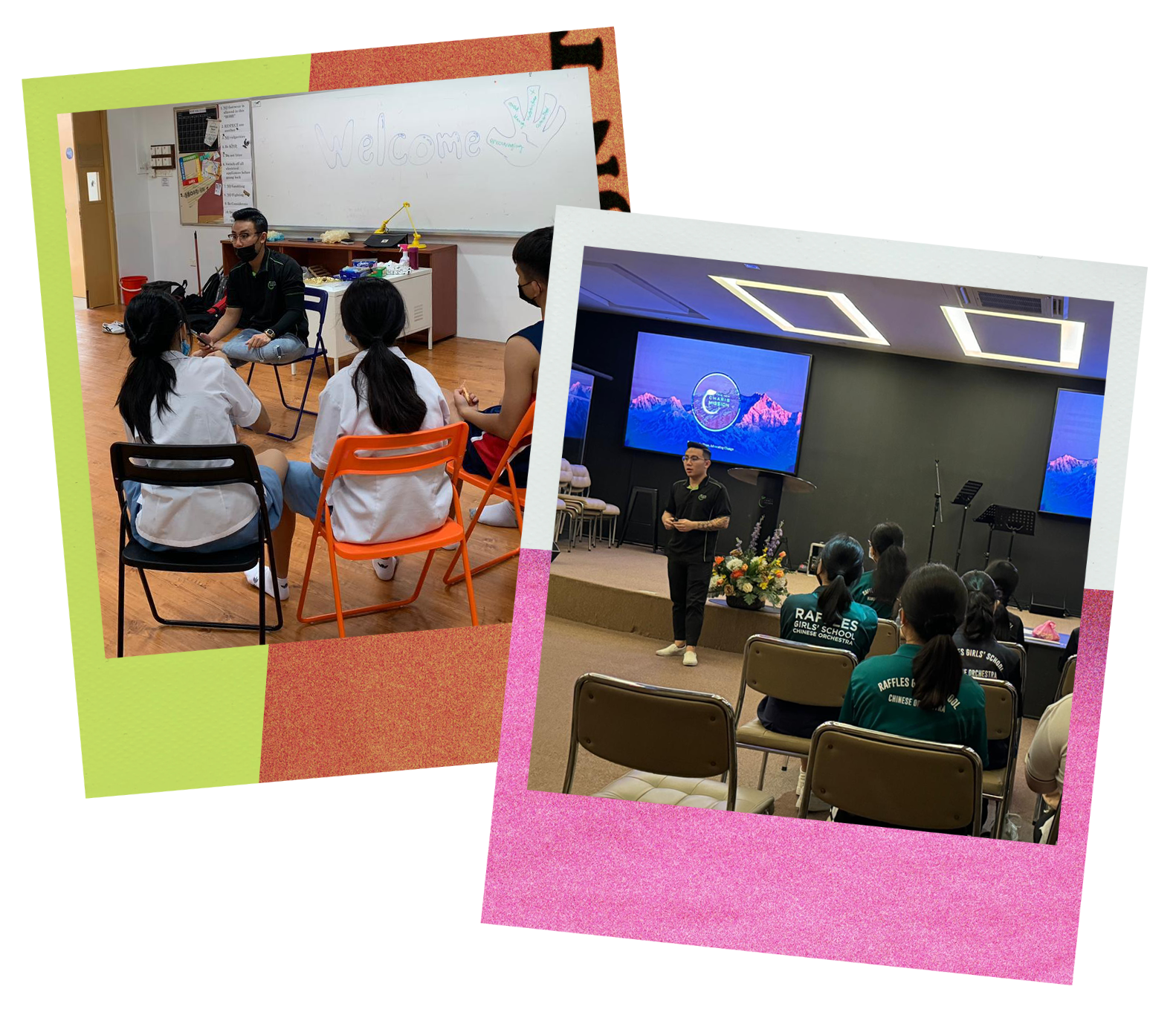
This led me to find a group of friends who were bad influences when I was twelve. We did drugs together, broke into and robbed houses, and engaged in many more illegal activities.
Life was hopeless and messed up… I felt “gone.” I felt like I was doomed and out of control, and stuck in a vicious cycle of drugs and imprisonment.
Being labelled as “hopeless” made me feel like nobody believed in me anymore. I felt angry, irritated and lousy. Hearing these labels multiple times, I felt numb to them and began to think that these labels defined me.
I felt useless and without a future, but it was hard to break out of the vicious cycle of getting high then going to jail – you don’t really think of stopping unless you’re in prison.
WILSON: My friends and family labelled me as a gangster, hot-headed, hopeless, unrepentant… but the most impactful was “incorrigible”. These labels mostly came from friends and people who weren’t very familiar with me.
Being called “incorrigible” made me feel like there was no more hope for me and that there was no way I could change, which dampened my desire to even want to change.
I grew up in a broken family and craved a sense of belonging, so I would get into gang fights.
Back then, being in a gang also came with a reputation and prestige, so I felt like being in such a group meant that I was finally being respected and accepted, and that I belonged somewhere.
But honestly, the most hurtful thing was what my mum and uncle once said to me: “Wilson, if you cannot get a big certificate or qualification, it’s okay. Get a small one like a driver’s licence can already, then you can be a taxi driver.”
I felt put down and compared to my sisters, who were successful in their studies and career. Especially in a country where these certificates of education hold a lot of value, it made me feel like they had lost all hope in me.
What was your experience like rehabilitating at The New Charis Mission (TNCM)?
ANDREW: I came to TNCM after my second time as an adult prisoner, wanting to merely stop my drug addiction.
TNCM was unlike any other halfway houses I knew of and unlike the other centres I had been to. Those were unhealthy environments for me. There was nothing much I could learn, and it was quite hard to change because everyone acted the same way as I did. Oftentimes, people ended up getting even worse.
But at TNCM, I felt the acceptance of the leaders and brothers there with me. The programme was and is really nurturing – there was a lot of discipleship going on.
And everyone can empathise with each other because we’re all having the same experience as residents, and we’re all involved in the house moving service together.
At first, I actually thought the house moving service was a waste of time. I was at TNCM to change, not to work. I figured I could always do other jobs outside if I wanted to work.
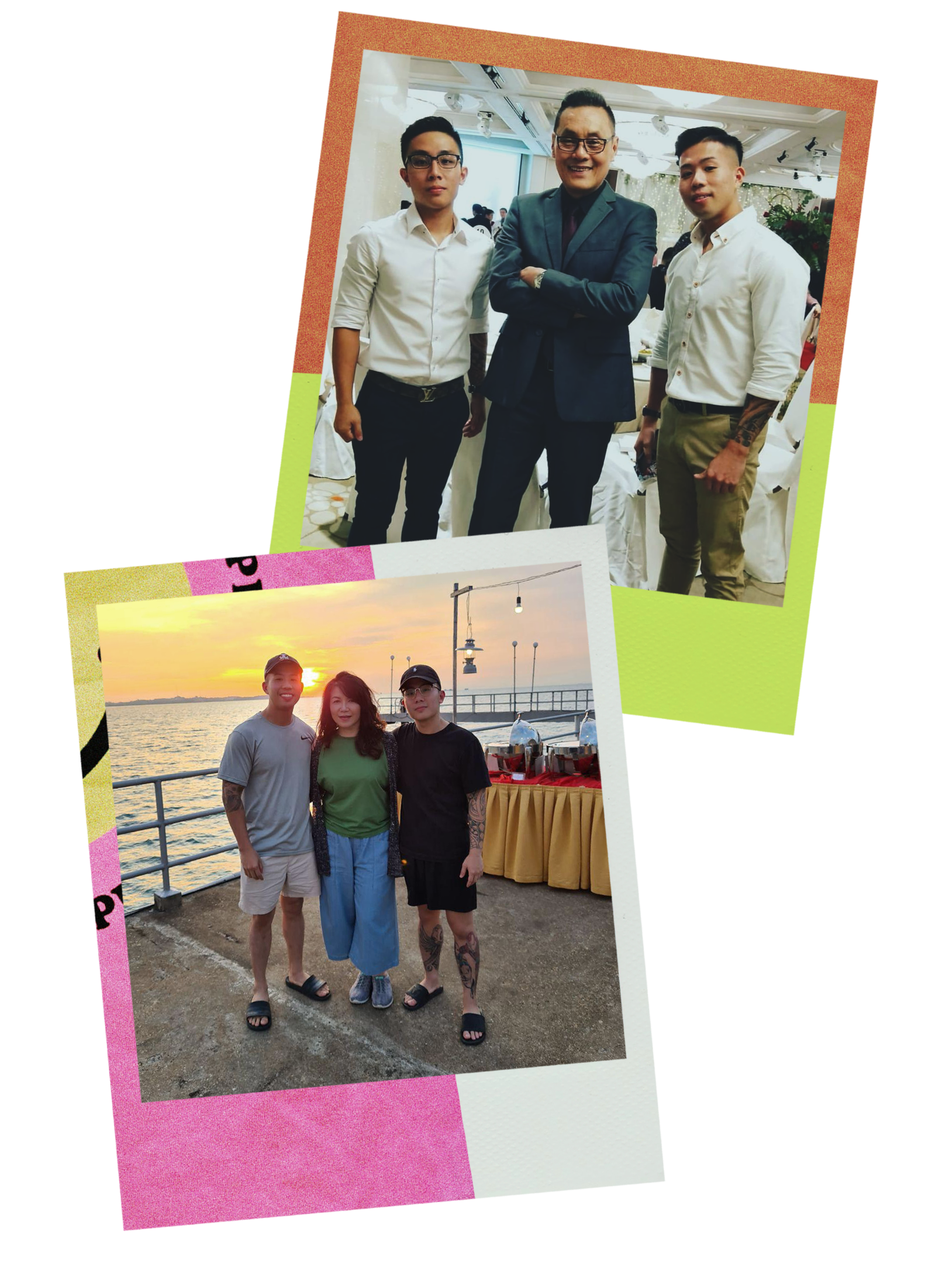
But the leaders really put effort and invested time into me, and saw me as a precious soul. They helped me to understand that this was merely a season of my life, which struck very deeply in my heart. Nobody saw me as any of my labels.
Pastor Don and the other people at TNCM weren’t just concerned about me stopping drugs, but also about what was next for me. They were concerned about my family, and over how I could upgrade and grow after being in the halfway house.
My family is Christian, but I didn’t know God for myself. I was only a Christian by name.
But during one of the worship sessions in my stay at TNCM, I felt God showing me that amidst all of my mistakes and wrongdoings, He loves me and that He had forgiven all my sins.
This made me realise I needed to change my whole life and not just my drug habits. I was able to enjoy the peace of God in TNCM even before I had committed to changing – I finally felt sober and free.
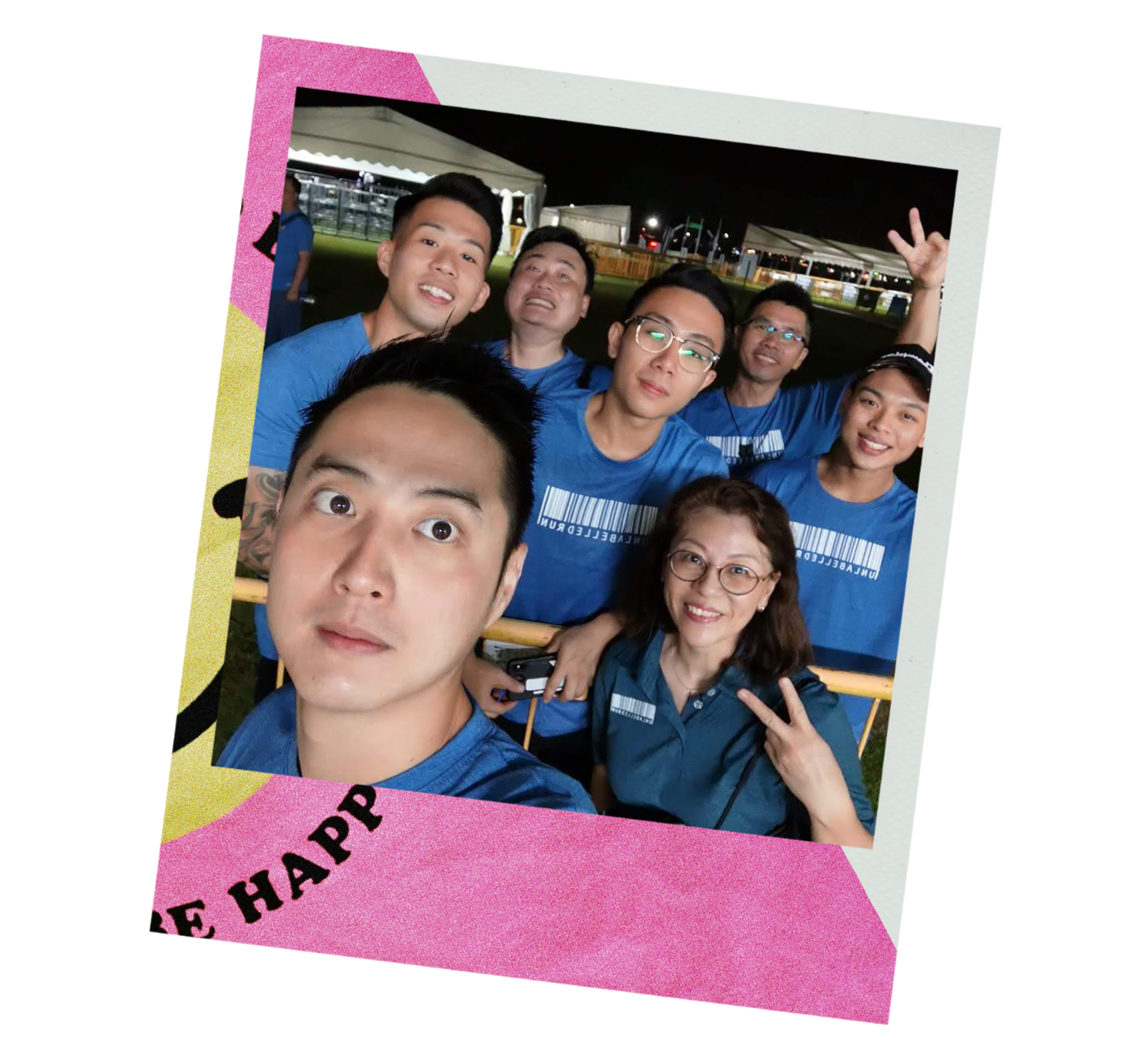
WILSON: I was first placed in TNCM when I was 15, and I was their very first youth resident! It was truly God’s plan that I ended up here, because I was originally redirected to another halfway house with a youth programme, which TNCM didn’t have at the time.
But the director of the other house was overseas, so TNCM took me in for what was originally supposed to be a week — which ended up being longer since I had warmed up to the brothers and staff residing at TNCM. This was where I really came to know God.
Growing up, I neglected my faith even though I knew God was real since I wanted to live a “fun” life — I loved the adrenaline rush from crime.
Yet I still felt empty and purposeless, and I ended up in prison twice, at 18 and 20. So when I re-enrolled into TNCM, my aim was to be away from the world and have a break from the world for three months.
At first, I felt miserable at TNCM because it takes a lot of compromise having to live with so many other people, and I didn’t understand the purpose of having to help people move houses.
But one day, I felt God’s presence very strongly during worship and I broke down. I’ve always considered myself to be “tough” — but I wept. It made me remember the presence of God and it transformed my life.
“I’ve realised that serving God isn’t a price, but a prize.”
The story of Joseph stuck out to me – though he was falsely accused, abandoned, and imprisoned, he never complained or blamed God.
Joseph didn’t stop trusting God and decide to walk in his own ways; he remained righteous and followed God’s ways.
This made me realise that if this is where the Lord has placed me, there is something to be learned from it. I used to like to be in control of my life, but through the relationships I had with people at TNCM and my journey with God, He taught me how to surrender myself to Him.
How has your life changed since knowing the Lord?
ANDREW: My perspective and way of life has changed a lot, especially knowing that life here is short compared to an eternity in Heaven.
I’ve become less angry and less defensive, and am more responsible and receptive to change. I used to feel a lot of hatred and resentment towards the people around me, but now I’m less bitter and selfish – I try to think of what I can do for others instead of what they can do for me.
I’ve realised that serving God isn’t a price, but a prize. I recently completed a diploma in social work and I now serve at TNCM full-time. I work in the programmes and community services department at TNCM now, focusing on volunteer management and the elderly ministry.
I also help to run programmes in prison and in schools.
While the work I do isn’t evangelistic, I know that I don’t have to share about God at my work for my life to still reflect the love of God.
Lives impact lives. I assist and guide the newer brothers in the programme and act as a “brother’s keeper” to them. I listen to their struggles and share experiences of how God can use them and mould them, and do Bible study with them.
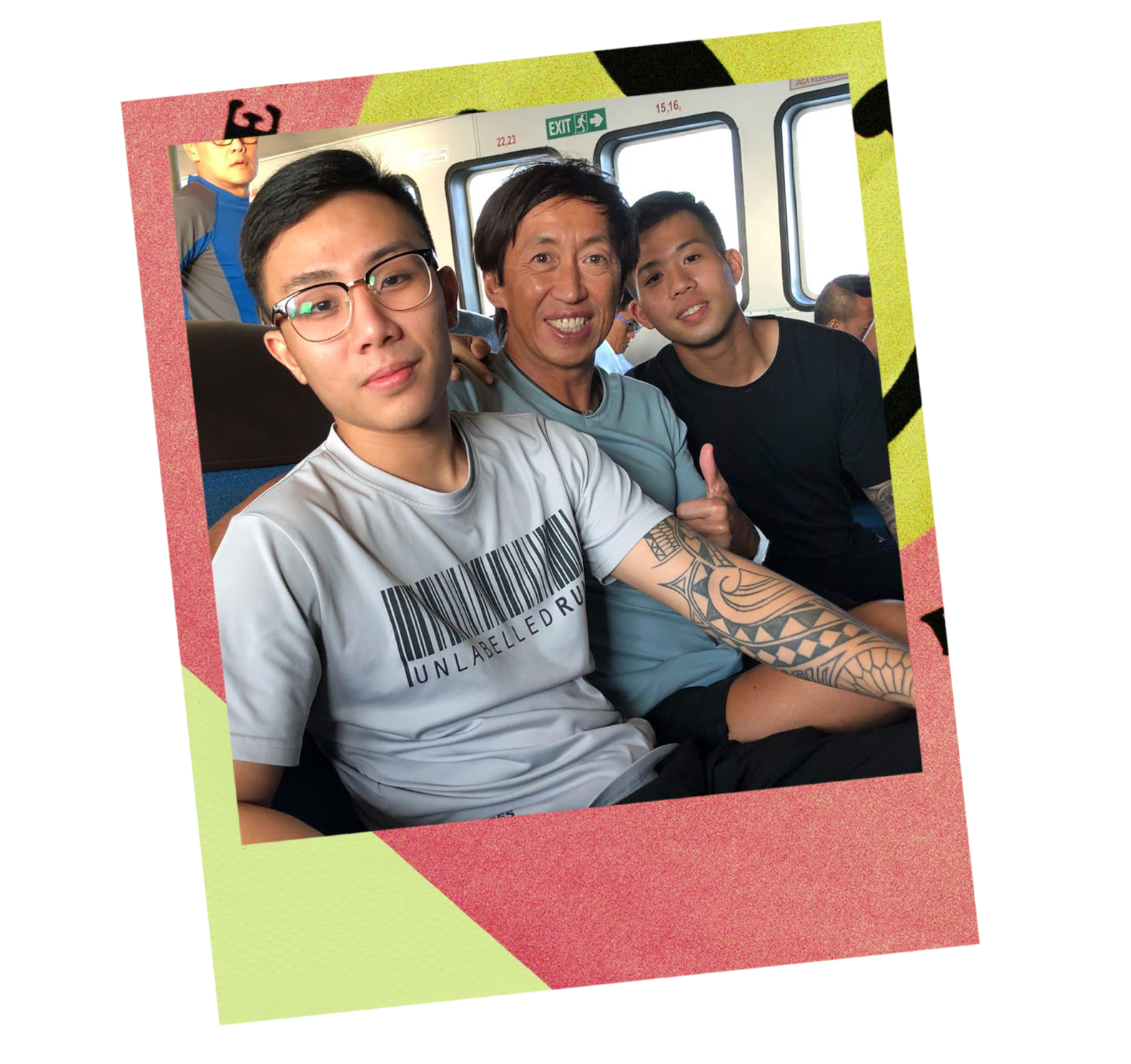
WILSON: I became more positive about my future and my values changed a lot. I’m more family-minded and I want to love and help people selflessly rather than being self-centred.
Years ago, I brought my friends into the mess of gangs with me, but now I’m trying to bring them into the light of Christ!
I completed a Specialist Diploma in Criminology and Psychology a few years ago, and I now serve in TNCM full-time, doing removal coordination for the house moving services and working on the annual Charis Bazaar.
The TNCM staff noticed leadership qualities in me whilst I was in the programme that I never thought I had before, so I use these gifts to mentor and disciple youths.
I try to always make myself available to them and show love to them by not being imposing or judgemental.
I build trust with them by spending time with them and listening to them, taking initiative to reach out to them when I can.
What does being unlabelled mean to you, and how can we break out of the negative labels placed on our lives?
ANDREW: I think being unlabelled encourages us a lot, and gives us hope and motivation.
When there were people in my life who believed in me and saw me as an individual with potential instead of seeing the labels placed on me, I felt less hopeless and useless.
Being unlabelled gave me hope that I could change and turn my life around and be a blessing to others.
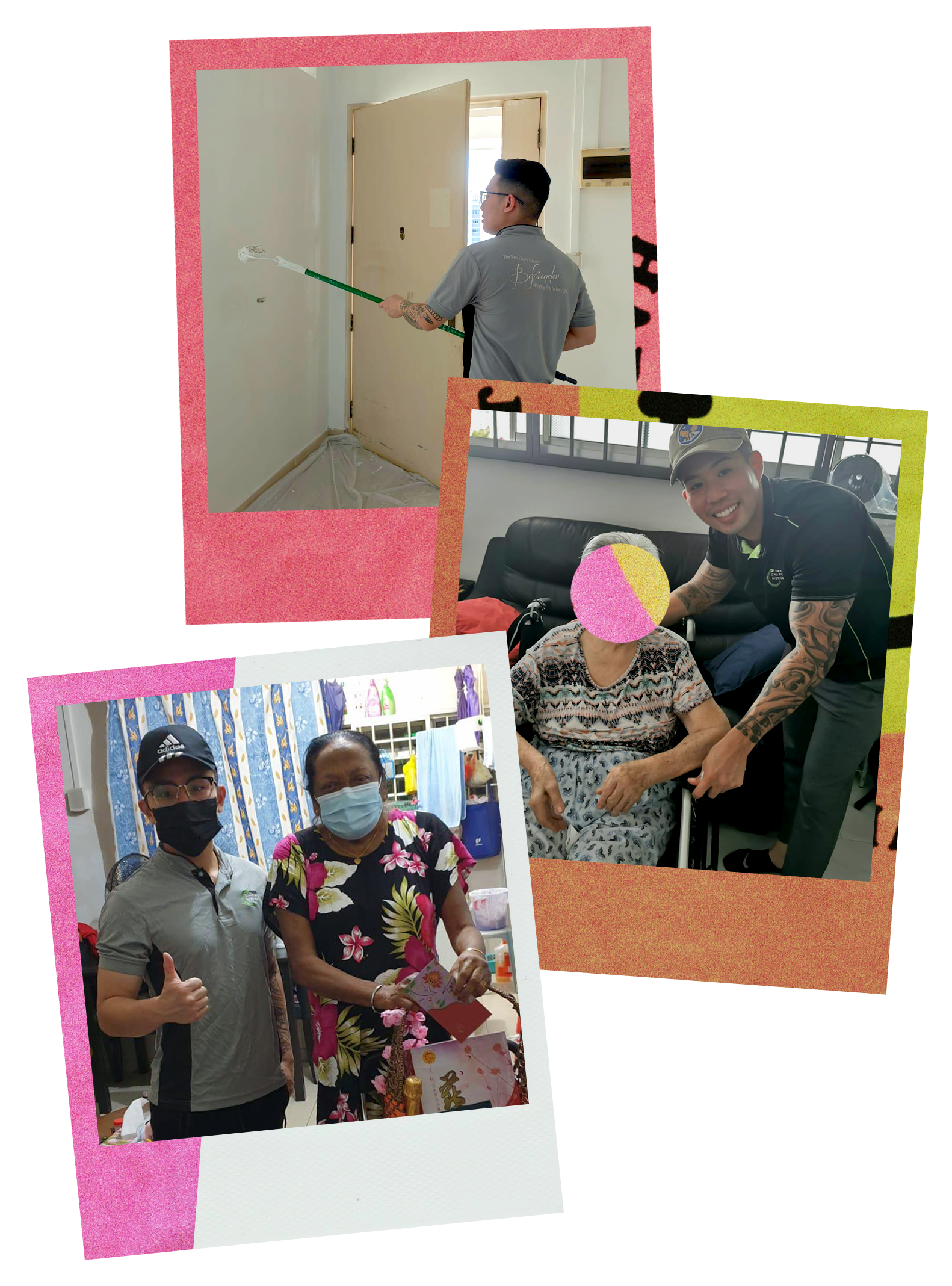
Just because someone is struggling with an issue doesn’t mean that they should be labelled with this issue.
For example, if someone is struggling with drugs, they are not a hopeless drug addict — they simply have a problem with drugs.
We need to recognise that the trait is the problem, not the person themselves.
WILSON: To me, being unlabelled means being free, having hope, and knowing that my identity comes from being a child of God rather than any of the labels placed on me. My advice to people who were labelled is to embrace God’s vision for you, not others’ perceptions of you.
We can break the cycle of labels by being non-judgemental towards others and being compassionate, understanding and genuine to those who may be struggling.
We need to help people believe that they were made for a purpose – God has a plan for us that is not limited by any qualification, certificate or status!
If you resonated with what Andrew and Wilson shared, support their cause by registering for the Unlabelled Run here. Sign-ups close on April 30, 2024!
- What are some labels that have been placed on you in the past, and how have they affected you?
- What will it take for you to put those labels down?
- Read Psalm 139. What does God say about you?









